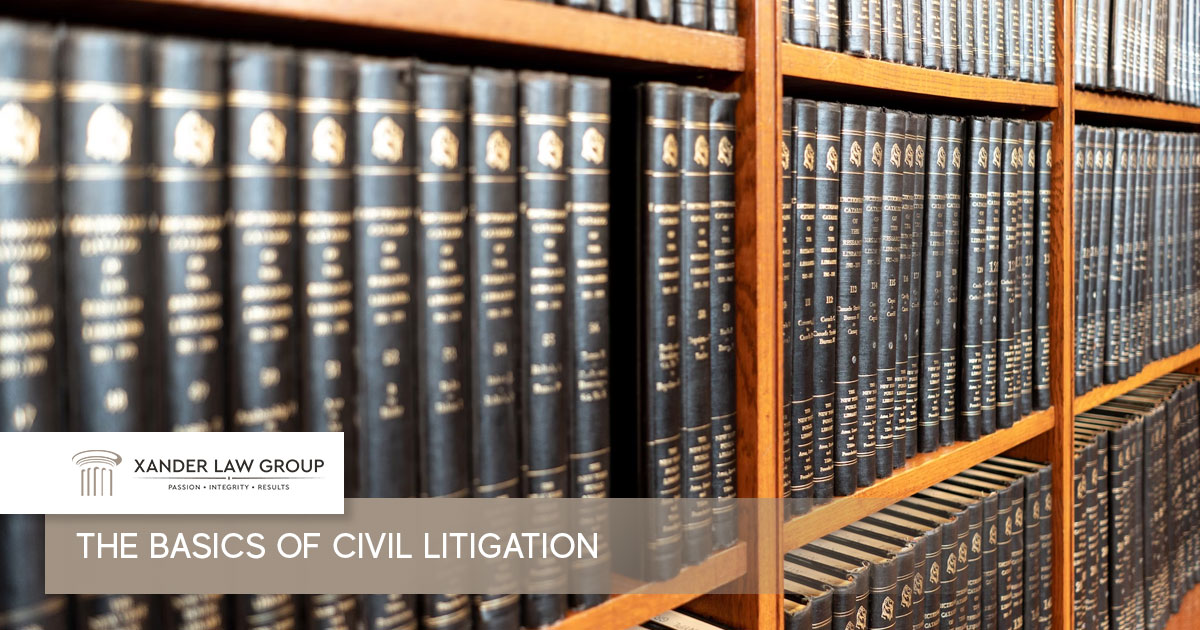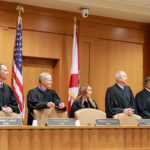The Basics of Civil Litigation

Civil litigation occurs when two or more parties are involved in some type of legal disagreement that involves money or action to be taken but doesn’t involve criminal law. They usually head to trial where a judge hears the facts of the case, applies it to local, state, and federal law, identifies any cases with legal precedent, and then ultimately, renders a decision.
What are Some Common Types of Civil Litigation?
Many legal disputes fall under civil litigation, including:
- Intellectual property
- Medical malpractice
- Personal injury
- Employment disputes
- Family law
What are the Steps of a Civil Law Case?
Every civil law case is different, but they all have similar steps. After establishing that there is a case, a civil law case can proceed as follows:
Pleadings
Each party involved files initial papers or pleadings. This is where they explain their side of the legal dispute. The complaint begins with a description of what the defendant did or failed to do that caused harm to the plaintiff and the legal basis for holding them responsible.
The defendant is then given a specific amount of time to file an answer to this complaint. They must file counterclaims or ask for clarification of allegations or theories.
A civil litigation attorney can represent you in filing these important legal documents in a civil case. Once the complaint has been completed, an answer submitted, and any reply resolved, it a docket number is assigned, making it an official case.
Discovery
Discovery is when a civil litigation attorney gathers all relevant information related to your case.
There are three forms of discovery:
- Written discovery
- Depositions
- Document production
The discovery process may include witness testimony and interviews, laws that pertain to the case, or any case-related documents. This period of time is generally the longest part of the proceedings and may require parties to ask each other for information on the facts or issues of the case. These interrogatories are written questions to the other party.
Depositions and Expert Witnesses
Depositions are another way of getting information where witnesses are questioned under oath by both parties’ attorneys. They are done to learn more about the facts of a case and to compare witness accounts. They can also be used during the trial to show any inconsistencies in a story or to question someone’s credibility. Expert witnesses may be used too.
Motions
Before a trial, each party can use motions to ask the court to take action or to make a ruling. These motions pertain to laws or facts of the case but sometimes ask for resolutions of disputes between both parties. Some may ask for one party to provide documents to the other or to exclude specific evidence from the trial.
Trial
At the trial, each party presents evidence in support of their claims or defenses. A brief is submitted before the trial begins to outline any arguments and evidence that will be used at trial. Bench trials don’t have a jury, the verdict is decided by a judge while jury trials involve a selection process where each party questions potential jurors.
When the trial begins, each party presents its case with evidence or witnesses. Each party is given the chance to cross-examine the opposing side’s witness too. After the defendant is done presenting their case, the plaintiff may present rebuttal evidence. Once all evidence is presented, closing arguments are given. Next, the court will go to recess and a judge will be given time to make a judgment, or a jury will deliberate to reach a verdict.
Statute of Limitations
In many civil litigation cases, the state has a statute of limitations for filing a lawsuit. Therefore, it’s important to hire an experienced civil litigation lawyer to represent you as soon as you believe you have a viable case.
South Florida Civil Litigation Attorneys
A consultation with our team of civil litigation attorneys will give us an opportunity to evaluate the facts of your case and determine whether we believe you have a valid dispute worth fighting. To schedule a free consultation, call our Miami law office at 305-767-2001.








